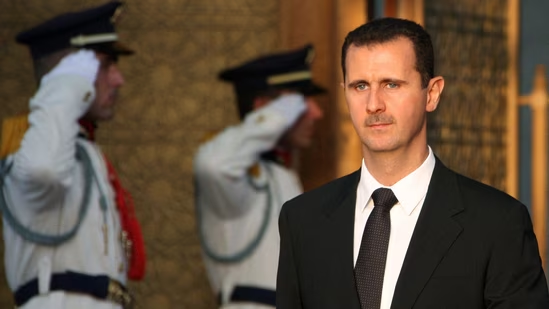Who is governing Syria after Bashar al-Assad’s exit? Syrian PM says…

Syrian Prime Minister Mohammed Ghazi Jalali expressed readiness to coordinate with the rebels after Bashar al-Assad fled to seek asylum in Russia.
Syrian Prime Minister Mohammed Ghazi Jalali sought to project a semblance of normalcy on Monday and claimed that “most” cabinet ministers are working from their offices in the capital, Damascus, despite armed rebels forcing ex-president Bashar al-Assad to flee the country to seek asylum in Russia.
Jalali claimed that the security situation had improved since the previous day. “We are working so that the transitional period is quick and smooth,” he told Sky News Arabia TV.
He also claimed that the government is “coordinating” with the insurgents and expressed readiness to meet rebel leader Ahmad al-Sharaa, formerly known as Abu Mohammed al-Jolani.
The prime minister’s statement comes despite most government officials fleeing their offices in fear of reprisals from the armed rebels led by the Hayat Tahrir al-Sham (HTS).
Government officials bracing themselves to continue work are adjusting to a new reality.
Judge Khitam Haddada at the Court of Justice in Damascus claimed that judges are ready to resume work as quickly as possible. “We want to give everyone their rights. We want to build a new Syria and to keep the work, but with new methods,” Haddad said outside the courthouse.
Damascus was quiet on Monday morning as people sought to return to their new normal. Most shops and government institutions were closed as people celebrated Assad’s exit in the public square.
Civilian traffic resumed even as public transport remained suspended. AP reported that long lines were found before bakeries and other food stores.
An official from the United Nations (UN) in Syria said some government services had been “paralysed” as worried government employees stayed home.
He also noted that the arrival of medical aid had been put on hold after aviation employees abandoned their jobs due to uncertainty.
The public sector “has just come to a complete and abrupt halt,” U.N. Resident and Humanitarian Coordinator for Syria Adam Abdelmoula told news agency AP.
“This is a country that has had one government for 53 years, and then suddenly all of those who the public media have demonized are now in charge in the nation’s capital,” he added.
Rebels seek to reassure.
Security presence remained thin on the streets. Social media videos showed a rebel fighter attempting to reassure citizens in the Mezzeh neighbourhood of Damascus.
“We have nothing against you, neither Alawite, nor Christian, nor Shiite, nor Druze, but everyone must behave well, and no one should try to attack us,” the fighter said.
On Monday, the rebel group’s command said they would not advise women on “how to dress” as they sought to put into action their promise of representative governance and religious tolerance.
“It is strictly forbidden to interfere with women’s dress or impose any request related to their clothing or appearance, including requests for modesty,” the General Command said.





